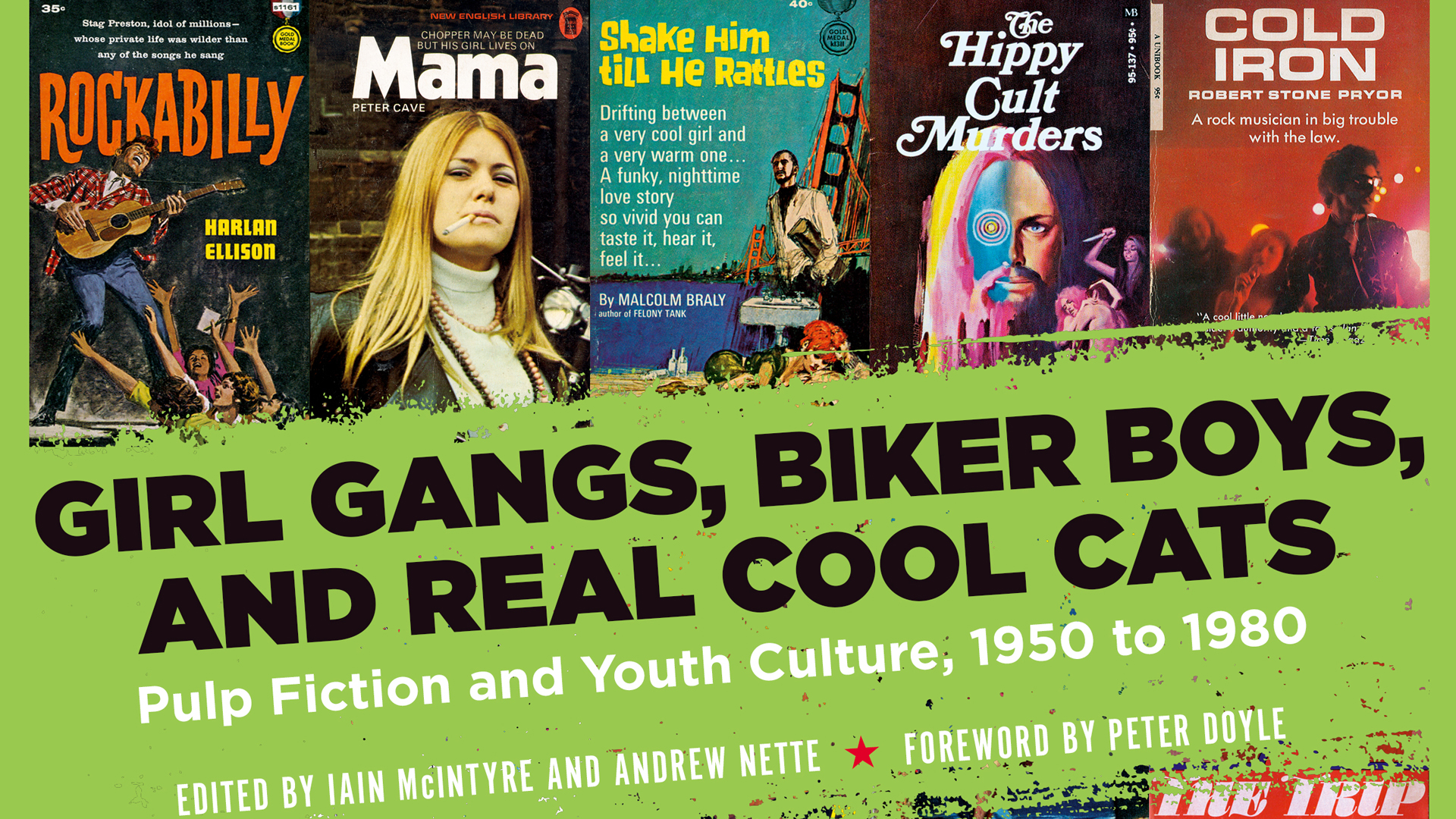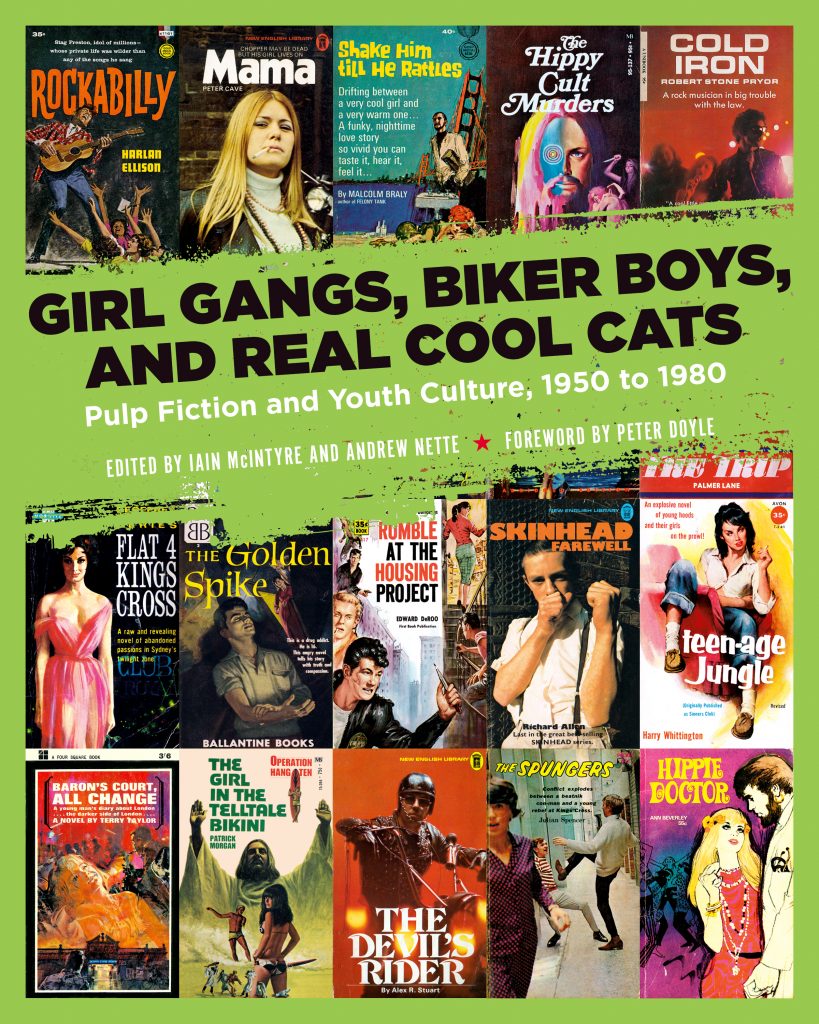By Andrew Stevens
Creases Like Knives
March 19th, 2018
Soho is a “suburb of London” and if you’re there you may want to steer clear of the National Front on account of their “reputation for racism and violence”. Unfortunate daftness out of the way first, this joyous account released on the spirited indie PM Press is a visual romp from the pulpy covers alone. With that in mind, Girl Gangs, Biker Boys and Real Cool Cats acts largely as a pictorial examination of post-war youth culture and book collections but is certainly no worse for it.
As can be expected, the book’s admiring editors (fans, rather than academics, though they include several) present pulp as firmly belonging to the 50s post-Reefer Madness counterculture of dope fiends and beatniks in squats, ‘Get Off the Road’ biker girls gone bad and hot rod blowouts. If you’re wondering why you’re even reading about this on here, there’s also plenty of room given to later pulp in the form of the youthsploitation New English Library (NEL) and its iconic school playground currency ‘paperback nasties’ in Richard Allen’s Skinhead novels.
Before we get there though, the book deftly includes the likes of Laura Del-Rivo’s account of seedy pre-Swinging Sixties West London The Furnished Room (1963) and Terry Taylor’s essential pre-mod Barons Court, All Change (1961). In among the so-called db’s (dirty books) of Maurice Girodias’ Left Bank Olympia Press there’s an account of low budget director Samuel Fuller’s 144 Piccadilly (1971), which references the real-life brief ‘Hippydilly’ squat of the same address in Mayfair, once laid siege to by airgun-wielding skinheads.
And so on to the NEL, which is covered by a handful of essays, including one by academic Bill Osgerby, which largely synopsise James Moffat as Richard Allen’s prodigious output of that decade. It may all go without saying and we’ve heard it all before, but there’d be no book without it, though McIntyre and Nette are certainly not the first to devote spadework to researching pulp. Stewart Home’s old interview with NEL editor (and later author of its Hells Angels novels) Laurence James in the book can already be found in full online. Then again, when it comes to pulp, all considerations are purely commercial and there are no rules (or as James put it, “we were either creative or we went under”). Well, apart from one, as in the steer given by the pulp house editor in response to self-confessed “fuckbook writer” Jane Gallion’s suggestion of injecting some humour into her stories: “No satire. Ya can’t laugh and keep a hard-on.” Andrew Stevens
Back to Iain McIntyre’s Author Page | Back to Andrew Nette’s Author Page







